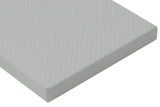Having a sturdy, durable build is crucial to the success of a boat against the elements. Most would not think of plastic as a viable material for this purpose, but marine plastic has proven to perform just as well, if not better than, some of the most common boat materials. Let’s explore some of the benefits that polyethylene and other forms of boat plastic can offer.
High Levels Of Resistance To The Elements
It’s difficult to prevent your boat from sustaining damage caused by the elements. Salt water not only causes abrasions to a boat’s hull over time, but also corrosion and deterioration to the bolts and bearings holding your craft together. UV rays from sun exposure cause discoloration, warping, and delamination. Plus, having constant exposure to the weather can leave your boat with unpleasant odors.
Marine plastics, particularly polyethylene and polycarbonate, are resistant to all of the above conditions. Plastic for boats doesn’t require paint that can chip or bubble from long-term sun exposure. When used as bearings or joints, it protects the different sections of the boat from pulling apart, as opposed to metal staples that corrode over time. Marine Abrasion Resistant Acrylic also helps reduce the wear and tear on your boat from the waters you sail in.
Overall, if you want a material that can endure the elements better than any other, marine plastic is your top choice.
Virtually Indestructible
Plastic boat hulls are increasingly known for their near-indestructibility. Compared to other boat materials, a plastic hull can more easily bounce off any debris or rocky obstacles you may encounter. You might wind up with a few scuffs, but your hull may still remain uncompromised, removing the stress of having to make a speedy patch-job.
Designed For Clarity
One of the most popular applications of plastic for boats is as a replacement for glass windows or windshields. Polycarbonate plastics like Makrolon Marine 5 are designed for strength and clarity in even the harshest weather conditions. This boat plastic is resistant to yellowing, sturdier than other plastics, and abrasion-resistant, meaning you’ll have a clear, shielded view of the sea no matter the weather conditions.
Safe Even When Wet
As you traverse the waves, your boat is going to get wet. Many materials can become especially slippery when wet, making nasty falls a concern if you use these materials for flooring.
Luckily, AntiSkid HDPE is the perfect solution. This high-density polyethylene is designed to prevent slippage, even when wet. Using it for decking, gangways and handrails will make your vessel much safer for you and your guests or crew.
Environmentally Friendly
In our increasingly eco-conscious world, it is important to choose materials that are sustainable and built to last. Marine plastic is easily fabricated and repaired, producing less waste than other traditional boat materials. Additionally, plastic is readily recyclable, meaning your old parts won’t have to wind up in a landfill.
To Sum Up The Benefits Of Marine Plastic:
- Marine plastic is resistant to common forms of weather-related damage, like abrasions, corrosion, and discoloration
- The flexibility of plastic boat hulls makes them nearly indestructible
- Boat plastics, especially polycarbonate blends, are perfect for windshields because they are stronger than glass and just as clear
- Some marine plastic, like HDPE, is skid-resistant, making it perfect for decking
- Plastic is environmentally friendly because it’s easy to recycle
Interested In Learning More?
Visit our marine plastic industry page to learn more about marine plastic’s benefits and applications. Then, visit our marine plastic sheets page to browse our full catalog of ocean-ready polycarbonate, acrylic, HDPE and more.






